So they moved to North Carolina lol. The text acknowledges this but I feel climate refuges are somewhat of a myth.
Also, there are many neighborhoods in LA that are much safer from wildfires. You have to evaluate your risk in a more granular way.
It might also be possible to construct our houses to make them much more fire resilient. I haven’t seen the details but I’ve heard that Australia made some big changes to their design standards in recent years but California has not.
We’ve already got climate refugees from countrys. Hell, a large part (probably not the only issue) of the Syrian civil war can be traced to water issues.
I would argue this is more because those places don’t have a stable, organized, and well-resourced efforts to adapt to the changes we’re experiencing.
A lot of this comes back to foreign military intervention, lack of democracy, and unequal distribution of resources more than which place is better or worse to live in a climatological sense.
California has also suffered from extreme drought in recent years, but this did not result in a refugee crisis because we have an extremely sophisticated water distribution system, we were able to effectively do rationing, and because we had the ability to import food as needed.
I think focusing on building institutions that can help communities adapt in place is going to be a way better strategy than identifying the one place on earth that is most suitable for human habitation and trying to have everyone move there. There may be some places that become truly uninhabitable, especially as things progress farther but we’re not there yet with maybe some very small exceptions—mainly coastal erosion and very low-lying islands.
A lot of this comes back to foreign military intervention, lack of democracy, and unequal distribution of resources more than which place is better or worse to live in a climatological sense.
The anger that is created when difficult decision of who gets to eat in a famine/drought situation is an opportunity for that “foreign military intervention” to target uncooperative/unsubordinated regimes. If US/Israel pays you to be an ISIS soldier, and there are no farming jobs, then a soldier you become.
Yes but I don’t think such an outcome is inevitable when faced with these climate challenges. I think it is possible to slow or stop military adventurism if we truly pursue a more democratic and pluralistic world.
Obviously this is a big challenge but it’s part of the task at hand to adapt to climate change. Pursuing peace is as important as pursuing fossil fuel reductions. Famines are actually quite easy to solve in the modern world during peacetime, and building up decentralized resiliency in these vulnerable places during more plentiful times can make a huge impact. Syria was vulnerable already before the famine because of its oppressive government and because of the actions and stances of world powers who wanted to use it as a proxy for their own conflicts.
I think it is possible to slow or stop military adventurism if we truly pursue a more democratic and pluralistic world.
Democracy, as approved by US, is easiest vector to install US puppet in a country. Everyone knows Crimea democratic referendum was invalid because CIA told you it was. All of the countries that the US celebrates as strong democracies are in favour of war on Russia, and future war on China. They celebrate the strengthening of democracy provided by Nordstream terrorist act.
Maybe, a more pluralist process in Syria would have resulted in a non ISIS/Al Quada US puppet ruler. But a US puppet would still have more corruption profit opportunities.
A more pluralist world starts with the US, and then an outdome where the US empire, does not oppress its population with its warmongering/militarism/Isreael genocide. Pluralism in general usually means freedom of women/sexuality. In Syria, Bashad provided this far more than expected Islamist rule will.
Pursuing peace is as important as pursuing fossil fuel reductions.
They go hand in hand. You cannot have influence over Russia’s climate cooperation if you are threatening to destroy/balkanize it. The massive diesel use, and terrorist strikes on its oil refineries, funds our own climate terrorist lobbyists to fund winning climate terrorist candidates. If war is necessary, then obviously nothing else matters relative to war.
Famines are actually quite easy to solve in the modern world during peacetime, and building up decentralized resiliency in these vulnerable places during more plentiful times can make a huge impac
An “arm of war” is sanctions. Venezuela and Syria sanctions fuel immigration which fuels right wing climate terrorist electioneering anger.
You seem to be arguing against a position I don’t hold. Neither the US not Russia nor their respective proxies have the type of democracy and local resiliency I’m advocating for. Deconstructing and perhaps, yes, even Balkanizing these imperial powers would be a step forward, though I think it will be best if this is done internally rather than by external powers. This too easily slides into factional conflict and imperialism rather than the far more winnable and liberatory conflict of people vs the elites.
Syria was a very complex situation but the best outcome I think would have been the success of the early revolutionary movement before it devolved into civil war. Perhaps there is a chance this can be revived if the new government is less repressive than Assad but I’m not too optimistic. Unfortunately, people there are tired of war and may choose the easiest path of hoping that the new government will treat people well without a need for organized resistance. But I do not think this is likely as it is the nature of states to consolidate power, and Syrian institutions that could resist this consolidation are currently weak. Once this consolidation is completed a new regime will be born and it will do as it pleases domestically just as all states that lack accountability to the people do.
Balkanizing these imperial powers would be a step forward, though I think it will be best if this is done internally rather than by external powers. This too easily slides into factional conflict and imperialism rather than the far more winnable and liberatory conflict of people vs the elites.
It is a nice sentiment, but Assad government, nevermind US government, has enough power to suppress organic wishes for liberalization, and Assad rulership had a lot of liberal pluses, despite not being pro Israel/US enough for US to tolerate his rule. There were no easy solutions to famine/drought.
Your 2nd paragraph is spot on.
My favorite is “cellulose insulation” used in attics. It’s basically literally shredded magazines. So you have this fire-starting material chilling in your attic waiting to turn your roof into the Statue of Liberty’s torch. Attics has soffit vents to let the fire motes in, and Bob’s your uncle. Foam stuff isn’t much better. Fire resistant material like fiberglass should be mandatory.
Cellulose insulation is usually treated to be fire resistant, meaning it will not spread the flame.
Unfortunately I don’t think this is a mandatory treatment.
My attic is spayed on the underside of the roof, nothing below, maybe 10°F hotter in the summer. And that’s ass cheap Habitat for Humanity home.
The issue is that in times of climate instability arid areas swing wildly into heat, drought and cold (not to mention catastrophic flashfloods and fires) because there is no water in the regional climate system to moderate those swings.
Don’t take my word for it, look at vanished civilization after vanished civilization especially in central and north america…
This isn’t going to get better, this isn’t the time in human history to live in an arid area, it is dangerous as fuck. Leave if you can, you have no idea how bad it is going to get because frankly not even the scientists do.
I keep giving this warning to people in the US but unfortunately I think we are headed for a mass heat death event (5000-10000 dead) in Phoenix Arizona or a similar city from widespread power outages during a brutal sustained heatwave.
Leave the desert now, I implore you, this is the wrong moment in history to be a desert dweller and ESPECIALLY get any loved ones with precarious health or that are elderly out NOW.
I wish this was hyperbole but it really isn’t…
Going to read the rest of this thread, damned interesting. But I was just saying today:
https://old.lemmy.world/comment/14400873
Scary what I’ve seen in less than 8 years. Seen the ecology change on my front porch. But most aren’t paying attention to the little shit like I do.
I saw fire ants move in, then armodillos moved north to us, around five years ago I found my first gecko.
The woods smelled and sounded different by then as well. Insect patterns have drastically changed.
The woods just feel different now, in the South.
Anyone who doesn’t see it either doesn’t spend as much time in the woods as they claim or are willfully ignorant.
It’s scary.
You don’t even have to go off in the woods! Used to have tree frogs on the porch, catching a free lunch off the bugs coming to the porch light. Now I rarely spray off the lights and there are zero tree frogs.
Used to see Indigo snakes in the bushes now and again. Found a foot-long baby last year, that’s it.
And as to the woods, tromped around our 2.5 acres of swamp this afternoon, way in the boonies. Saw 4 squirrels, that’s it. Not another animal, of any sort, not even much evidence of animals. OK, there’s something tiny popping around under the water, no clue, can’t ever see them.
As a fellow Southerner, you might like this:
Yeah on the ecological side I saw a study that found a single intense pulse of stormwater runoff, especially after a dry period where surface/roadway pollutants have built up, can be fatal to young salmon even if normal pollution into those waterways and groundwater is extremely clean and well managed. It is a pattern of awful chaos and shock that echoes and echoes until systems shatter apart and you can’t see it coming if you only look at the changing averages and baselines.
Exactly the sort of thing I’m talking about. On one hand, our environment seems far hardier than we thought. On the other, it cannot take these non-stop shocks, year after year after year.
Read my example? Two years is enough to decimate and reconfigure the insects in my tiny area.
Well first of all most of California is not a desert. It’s a Mediterranean climate. This is part of what makes fire so common. We normally have warm dry summers and cool wet winters. The winters allow vegetation to grow and the summers allow it to burn. At least that used to be the case, but regardless, it’s likely we’ll continue to have periods of healthy vegetation growth interspersed with extreme fire weather.
Desert climates are actually among the safest environments from a wildfire perspective because there is little vegetation to burn.
On the flip side, they are very vulnerable to extreme heat, as you allude to. But Mediterranean climates tend to be very mild in terms of heat—in fact many people in California do not even have air conditioning because there is no need for it where they live. Now, that doesn’t mean California won’t have issues with extreme heat—indeed, the lack of historical heat means we don’t have strong protections against it. But heat issues here are far less serious compared to Phoenix, the Deep South, and many other parts of the world. California is not projected to be among the areas where lethal heat is a regular occurrence.
So you are combining multiple catastrophes that don’t coexist in California to paint a worse picture than actually exists. And you are ignoring that extreme heat is actually more dangerous in humid climates, as are hurricanes and other catastrophic storms.
Climate change is a global phenomenon that will cause disruption and disaster everywhere. It is up to each community to act decisively to develop social structures and infrastructure to evaluate and adapt to the coming challenges. In fact, I think mass migration is more likely to make this more challenging by cutting social ties and loss of local knowledge.
To be clear, some migration will likely be necessary and part of this adaptation will be accommodating this. But these narratives that everyone needs to flee to somewhere safe do more harm than good. There is nowhere safe except those places that we render safe.
I hate to be the messenger here but while there is certainly truth to what you are saying, California is pretty much just as fucked, the only difference I see is there will be a greater variety of climate disasters than in the true deserts of the US.
https://www.climateassessment.ca.gov/
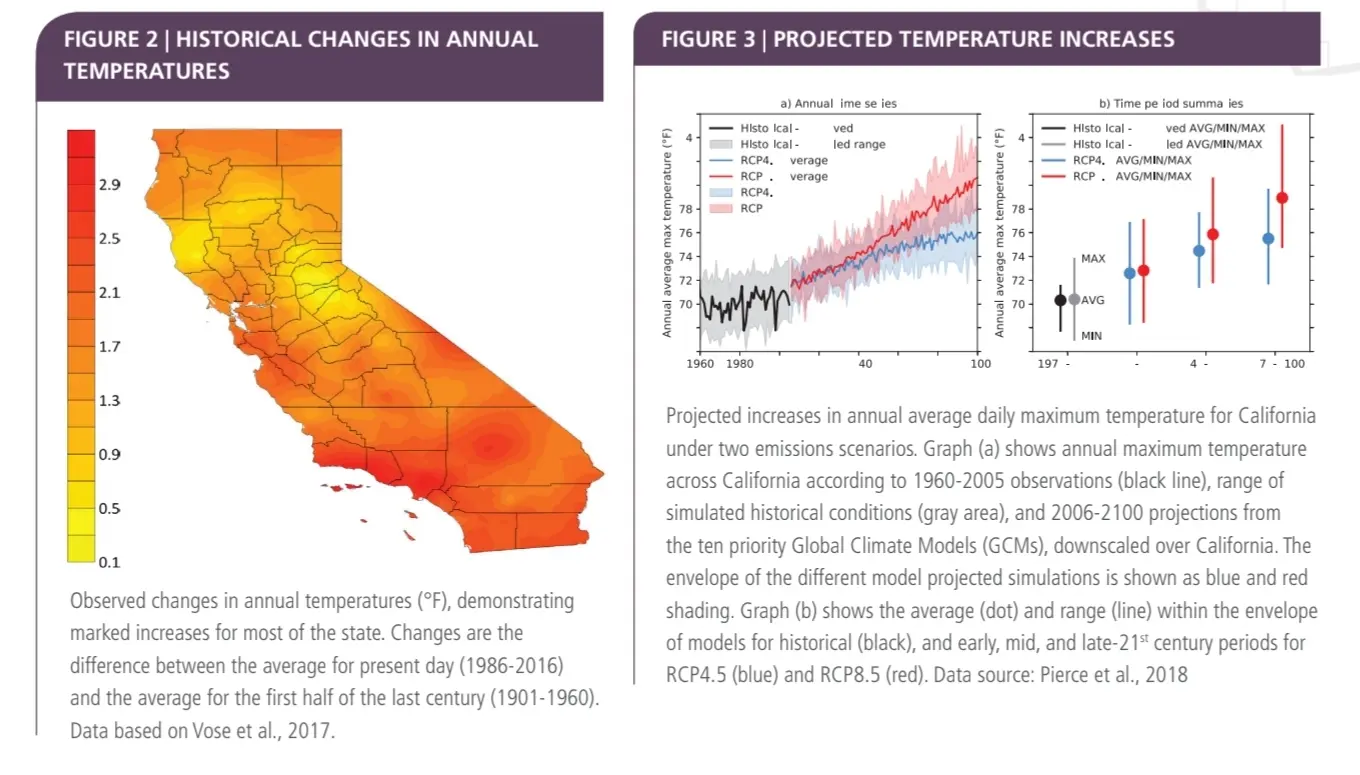
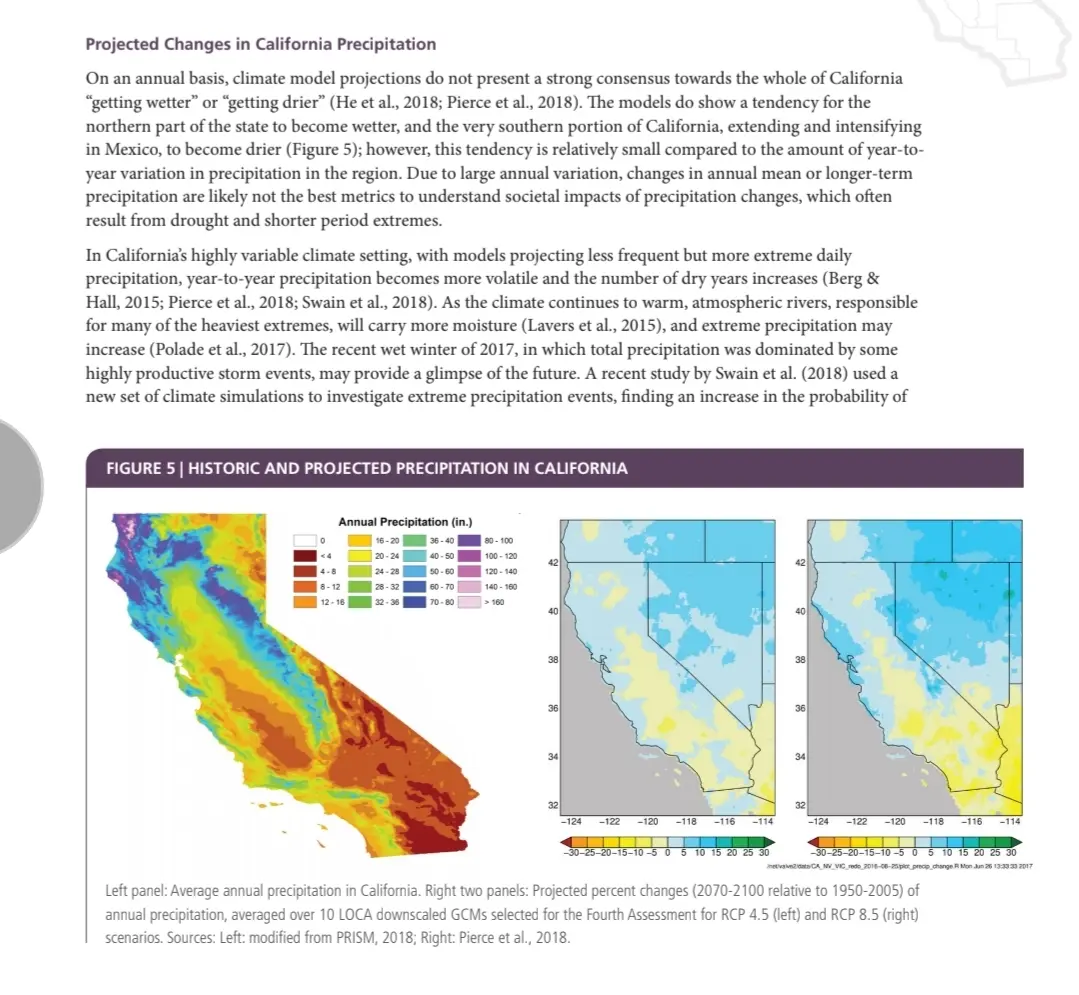
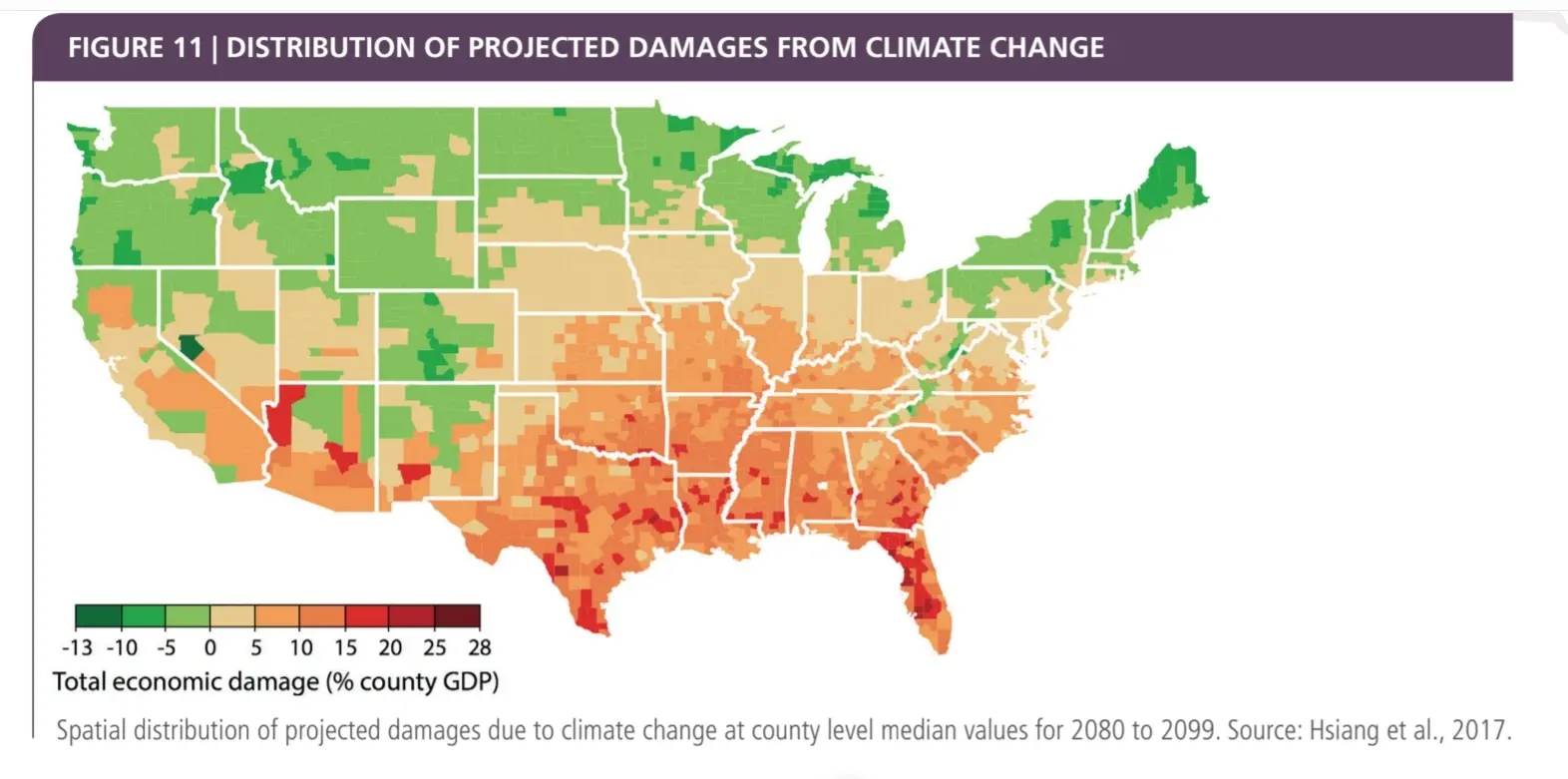
None of these links support what you’re saying. Yes, heat is increasing, as it is virtually everywhere. Precipitation changes are small as outline in the graphic. And the heavily inhabited parts of California are along the coast where the modeled changes in GDP are negligible.
Now I personally suspect it may be worse than this but it certainly does not support the idea that California is somehow a dramatically worse place to be than anywhere else in the country. I know there has been some speculation that the upper Midwest and northeast might constitute some kind of climate refuge but I doubt this. These areas are generally humid and not well prepared for heat, and we’ve already seen huge wildfires and increased flash flooding in many northern areas. Not to mention extreme pest outbreaks and forest dieback, increases in mosquito-born illnesses, and even arctic air outbreaks and blizzards. Part of what makes these places less harmed by warming is the fact that they are already so cold. But people there are used to this cold. They are not used to the challenges to come.
The issue with climate change is primarily the change. We can adapt to these new conditions given enough time but their rapid and global nature makes this difficult.
These areas are generally humid and not well prepared for heat
I don’t think you understand, it is precisely the humidity, i.e. the consistent flux of water through a regional climate that serves as a moderator of deadly, extreme and permanently damaging weather events.
Think about how much energy it takes to boil a pot of water, water absorbs and softens chaotic swings in energy in regional climate systems because of that capacity for water to hold heat energy.
There have been numerous studies about this from first street and others that show semi-arid places like California getting hit brutally hard not so much by a massively changing baseline of average environmental conditions but rather from the rapidity and violence with which energy passes through semi-arid regional climates when there isn’t a consistent background flux of water that can divert and dilute the impact of natural disasters and weather events.
I understand the concept you’re describing but you aren’t applying or understanding it correctly. In fact, California’s climate is dominated by this effect because prevailing winds bring cool oceanic air to the state which is why coastal areas do not get extremely hot or cool. As this air warms across land the humidity drops, so this climate is a bit unique in the way it works but there is typically no extreme heat combined with humidity.
In contrast, the eastern US receives most of its air from dry inland areas, which is why the climate is so seasonally variable. It’s true that the more humid climate does reduce the diurnal temperature swing, and this means absolute maximum temperatures can be lower in many humid climates compared to their arid counterparts. But this ignores that the human body can tolerate dry heat much more effectively than humid heat. So the relationship between aridity and extreme heat mortality is more complicated than it first appears. The most vulnerable places are those that are both hot and humid like the gulf coast, parts of the Middle East, and India. There’s absolutely no reason to think California will be rendered uninhabitable by extreme heat in the foreseeable future.
Look at these figures, you are horendously off the mark with your conclusions here, California is going to continue to be a place where climate change brutalizes people and it sucks :(
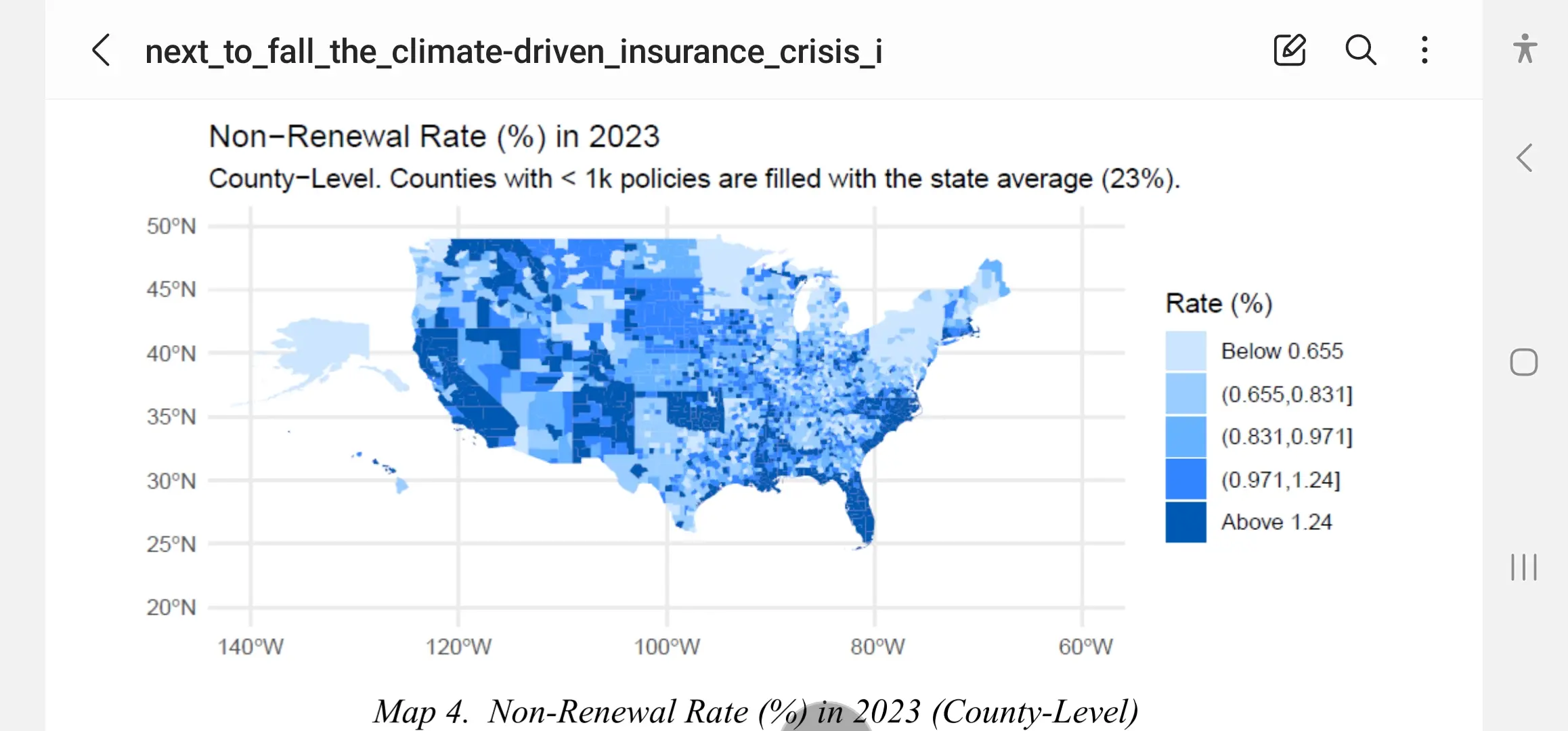
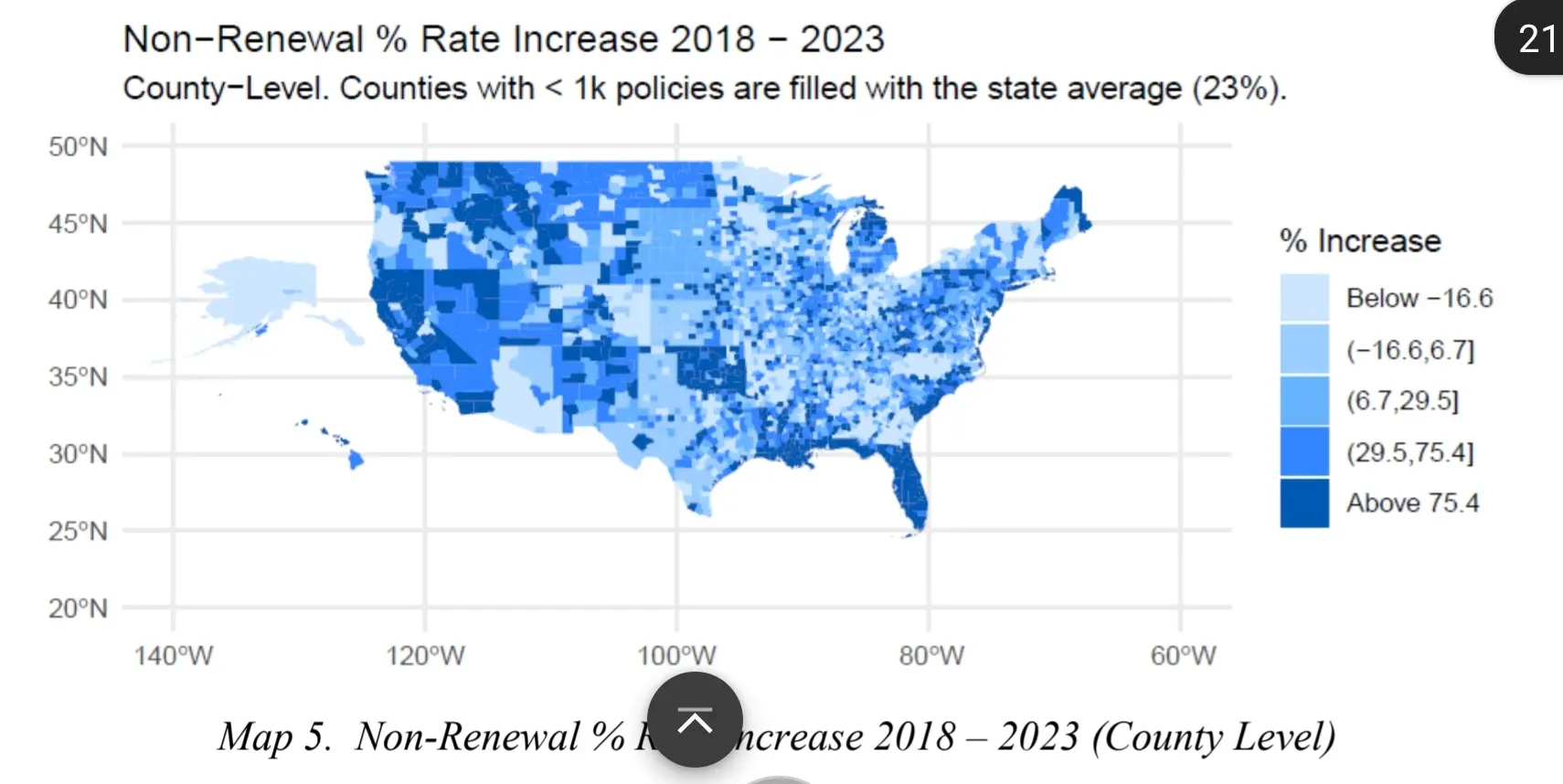
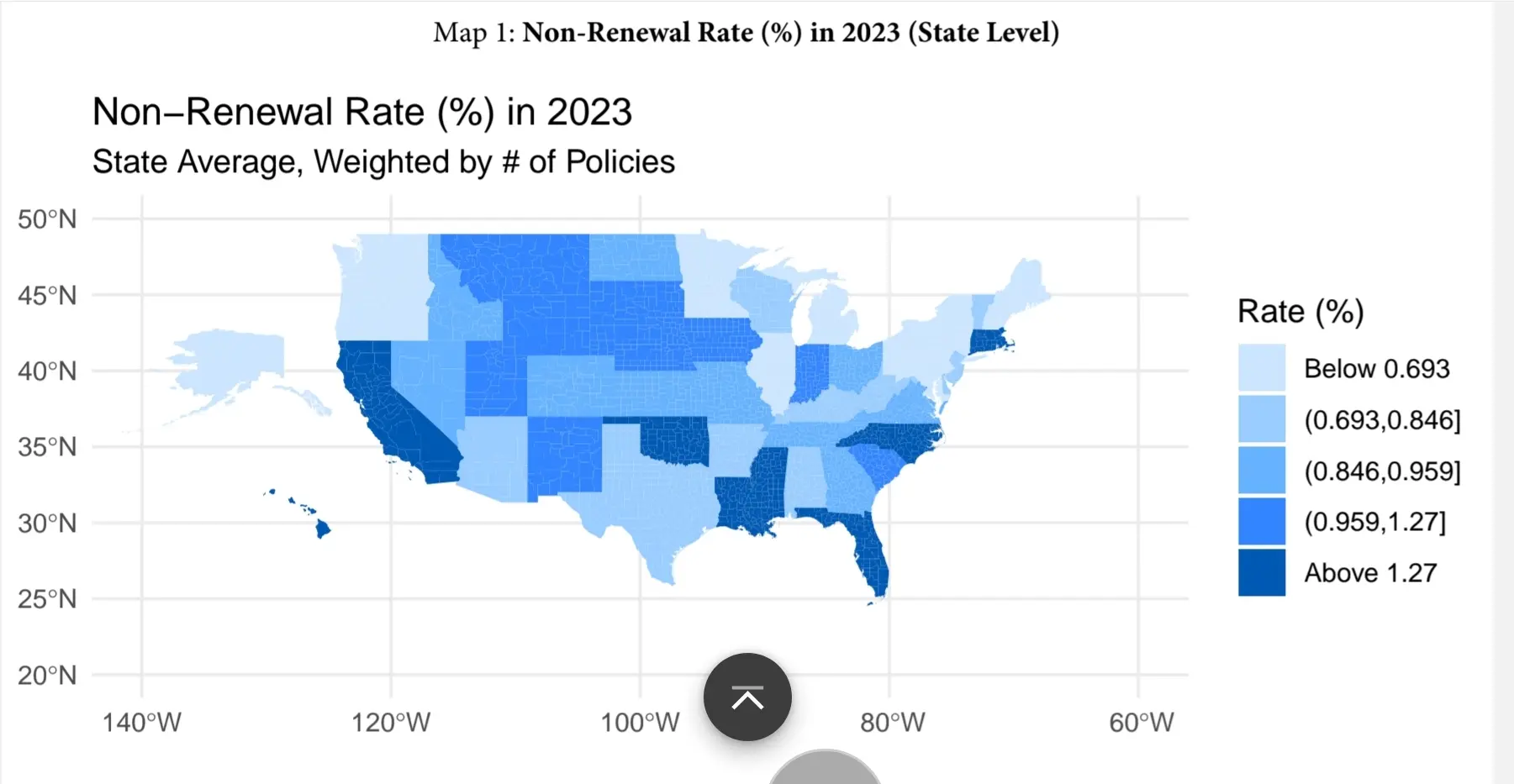
Also my argument is explicitly not that baseline environmental conditions are going to wreck havoc on people’s lives in California and rather that in places like California it is the increasingly wild swings in weather that is going to kill and displace people in mass amounts.
I don’t think you are grasping my fundamental point. Most of the time these places will still have nice weather, it is the exceptions and the speed of them that will inveitably cause mass migration out of these areas.
Think of it as living at the bottom of a long slot canyon along a river in the desert but the entire regional climate system is the slot canyon. Most of the time it is a wonderful place to live but the bad days are really bad and the trouble is they come with little to no warning.
Compressed sand houses with metal rooves are pretty fire resistant. A large firebreak around your house requires that you own a bunch of land around your house but these are rich people in some of these areas so they can afford it.
Perfect for fallout 2 season
Assuming we even get it before the fall of the empire. They stopped production because of the fires and we werent even getting it till 26 even before that.





